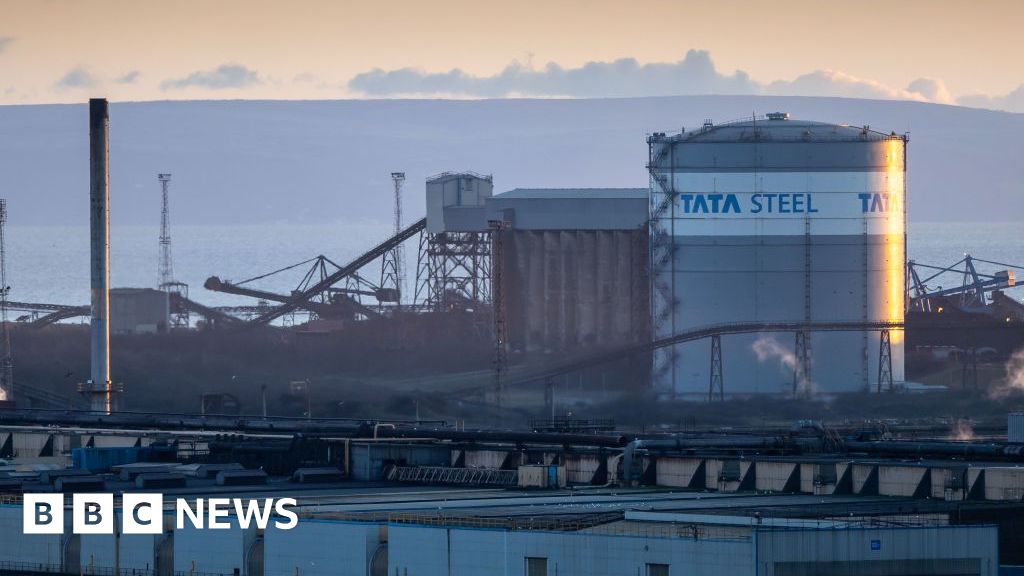The Unite union has urged Tata Steel to hold further talks before moving ahead with plans that could see operations ceasing at Port Talbot by the end of next week.
Tata had originally planned to shut the last of its blast furnaces at the site by September, but has said it may halt operations earlier for safety reasons because of a planned strike on 8 July.
Unite has called on Tata to wait until after Thursday’s general election result before making any “irreversible decision”, and then hold talks with the next UK government.
In response, Tata said safety “will take priority over everything else”, and urged Unite to withdraw its industrial action.
About 2,800 Tata steelworkers will lose their jobs across the UK when the company closes both blast furnaces at Port Talbot.
Unions are hoping that if Labour wins the 4 July general election then the party would be able to persuade Tata to take a different course of action with fewer job losses.
Tata has said it would not change its plans whoever wins the election, and it has no option but to close early if next week’s strike goes ahead.
Meanwhile, the company has filed for an injunction at the High Court to try to prevent the strike from happening, saying Unite’s ballot was not carried out properly.
Unite rejects this claim.
The other unions which represent steelworkers at the site – Community and GMB -say they would wait until after the general election before deciding whether to strike.
In a statement on Saturday, Unite said it had “repeatedly requested that the company commit to not making any final decisions about the future of the blast furnaces until after the election, when meaningful negotiations can be held”.
“Instead of waiting for a likely change of government, Tata has decided to double down,” it said, urging the company not to “make any irreversible decisions and enter into meaningful negotiations”.
In response, Tata said it could not be certain it could “safely and stably operate our assets through the period of strike action”, adding it “will not have any choice but to pause or stop heavy end operations” at Port Talbot.
“That is not a decision we take lightly, and we recognise that it would prove extremely costly and disruptive throughout the supply chain, but the safety of people on or around our sites will always take priority over everything else,” it said.
Port Talbot residents have also spoken of the widespread impact closures would have on the whole town, not only those who will lose their jobs.
Speaking at the Bulldog boxing and community activity centre, Ian Jones said the closure of the furnaces was “shocking”.
“The people of Port Talbot are going to lose so much, not just from the steelworks but also the people who supply the steelworks. It’s not good at all,” he said.
Mandie Pugh who runs a breakfast van close to the steelworks said the closure would be a “big blow” to her business.
“Fingers crossed I’ll survive because we have other businesses around here who come for food but it depends if they can survive with the knock-on effect because they might not be able to stay in business,” she said.
Tata plans to build a £1.25bn electric arc furnace to produce steel in a way which is less polluting than traditional blast furnaces but requires fewer workers.
It said the move would secure the future of steelmaking at the site, and the UK government is contributing £500m towards the cost of the project.
The plans for the site will see both furnaces shut down. Number five will go off by the end of next week as planned, while four is due to go off by the end of September.
Preparatory work to shut down five will begin by 1 July if the strike goes ahead.

